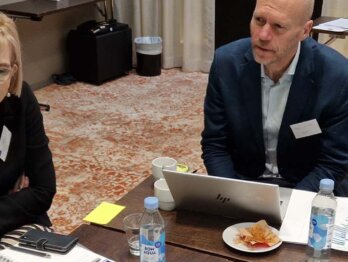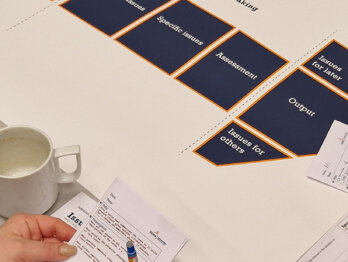Trust, civic space and anticipation – three perspective on systems change in Finland

Editor’s note: This guest blog was written by Katju Holkeri, Head of Unit for Governance Policy in The Public Governance Department in the Finnish Ministry of Finance. This post was written following a February 2021 collaboration session between three OECD teams to join up intersecting work on trust, civic space, and anticipatory innovation governance in Finland.
Anticipating the trust of citizens is not easy. What is possible for us in Finland however is to strengthen civic space and our anticipatory innovation governance so that they could contribute to the strengthening of citizens’ trust towards government and vice versa to the trust of government towards its citizens.
Always trying to be better
How can we strengthen trust in institutions? How can we better support civic space? How can we build anticipatory governance to support the systems change in society?
With growing pressures of demographic change, economic and social consequences of the global pandemic, climate change and evolving dynamics of the digital environment the questions about trust, civic space and anticipatory governance are vital for our society.
That is why Finland has asked the OECD for a review on the drivers of public trust, for a civic space scan and for an anticipative innovation governance project, the last of which is funded by the EU. All of these projects will be delivering results by summer. They are already individually very important. What is more, the picture they will form together of the need for reform in our Finnish society, will be substantial. Even though Finland scores well in international comparisons we all know that there is room for improvement.
Joining forces for the future
Innovation is one thing that is needed more in the Finnish society and in its public sector. Our small innovation was to bring together the three teams at the OECD and in Finland working on these three projects. The main purpose was to brainstorm, discuss common challenges, look at the synergies and develop common narratives. This way we searched for the upcoming opportunities for the future of Finland’s democracy with a particular focus on the Anticipatory Innovation Governance.
Way to go
The three OECD teams outlined the main governance challenges for Finland’s public administration they have explored. Looking at the future from this new triangle of trust, civic space and anticipatory innovation governance together, we identified key challenges:
- The democratic continuity – how could we strengthen political efficacy of serving the future and to address the challenge of the political cycle vis-à-vis the issues that need long term commitment.
- Public inclusion – how to find new possibilities of having government and citizens co-create seamless government leading to new operating models and services.
- Digital, data, and interoperability – how can we better address civil servants’ digital capacities and reduce silos.
- New ways of reflexive learning and new methods – how to address cultural barriers to experimentation, limited learning loops, and a lack of alternatives exploration.
These are not final conclusions or a comprehensive list. The three reviews OECD is doing for Finland are each very wide and extensive. Our short brainstorming session showed however that even though they seemed maybe even too extensive to process jointly, it was definitely a worthwhile exercise.
And then what?
We even went further in our session and started thinking about possible reform areas and solutions. Among these were for instance integrating discussions of the future in every aspect of government (also during crises) and bringing the citizens in the discussion at all policy stages. We also talked about a bold re-thinking of the core processes to truly bring the citizens at the heart of government. Another example of a reform area that came up was anticipating the possible regulatory frameworks for seamless government and services of 2030s
It will be of course essential to prepare concrete proposals once we have the recommendations from the three areas from the OECD. Given the need for reforms for the future of Finland’s democracy and government institutions, the Finnish collaboration with OPSI’s AIG team and with the OECD more generally, is an important part of the process. The Finnish Anticipatory Innovation Governance case is also being followed by the European Commission and will be considered as a possible framework for other countries equally interested in strengthening democratic institutions and building up governance structures to innovate and proactively shape change that will affect countries’ trajectories.
Additional forums, sense-making sessions, and learning sessions will be scheduled as the Anticipatory Innovation Governance project proceeds. For more information or to participate in future events, please contact [email protected].












